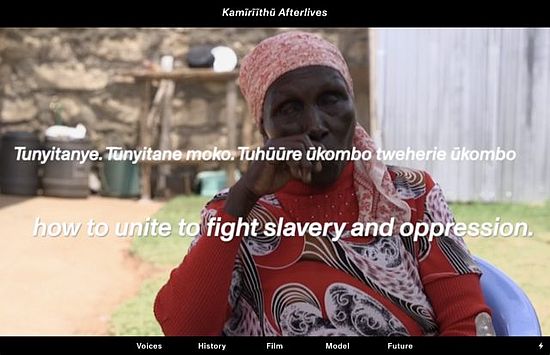Kamĩrĩĩthũ Afterlives
2020–2026
Kenny Cupers, Makau Kitata
The Kamĩrĩĩthũ open-air theatre is a world-famous initiative in African decolonization. In 1976, Kenyan workers and peasants came together to build an open-air theater and stage a play that soon attracted huge audiences from across the country and beyond. Written by Ngũgĩ wa Thiong’o and Ngũgĩ wa Mirii, the play “Ngaahika Ndeenda” (“I Will Marry When I Want”) became a powerful means by which the community of Kamĩrĩĩthũ confronted land dispossession, industrial pollution, gender disparity, and (neo)colonial injustice. Soon after its establishment, however, the Kenyan government imprisoned Ngũgĩ wa Thiong’o and demolished the collectively built and managed open-air theatre.
Kamĩrĩĩthũ Afterlives is a collaborative project to commemorate and reactivate this heritage and to support struggles and debates about social and environmental justice in Kenya today. Led by Kenny Cupers (University of Basel) and Makau Kitata (University of Nairobi), it brings together the original performers with community stakeholders, institutional partners, and performance-based initiatives for social and environmental justice. The project is ongoing and consists of four interdependent elements: an open-access archive with the voices of the original actors and others involved, a digital model of the original open-air theatre, a documentary film, and a future reactivation of performing arts in Kamĩrĩĩthũ.

Quick Links
